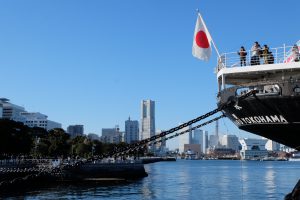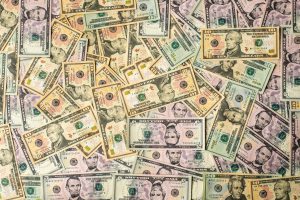目次-Contents-
Outline of Consumption Tax
If you are a company or a sole proprietorship doing business, you are probably dealing with the consumption tax like below.
1.【Sales】 Add 10% consumption tax to the sales price and charge it to the customer.
2.【Purchase】 Payment with 10% consumption tax added to the purchase price
The consumption tax you charged is NOT yours.
It is simply a consumption tax “deposited” from your customer, as it is ultimately paid to the national or local government.
So when do you pay the consumption tax deposited?
When do you pay the consumption tax?
Normally, a consumption tax return is filed within two months of the end of the fiscal year, and taxes are paid based on the results.
How much the tax will you pay?
It is not a full amount you received from your customer.
When you buy goods or services, you pay consumption tax.
The person who receives the consumption tax (the supplier) is supposed to pay the consumption tax to the government.
If you pay the entire amount of consumption tax to the government, the government will receive a duplicate amount.
To prevent this from happening, the consumption tax you need to pay is calculated as follows.
Let’s see an example.
▶Sales:1000 yen
▶Purchase:400 yen
(consumption tax received):10% of the Sales; 100 yen
(consumption tax paid):10% of the Purchase; 40 yen
Amount of tax paid:100 - 40 = 60 yen
Detailed entries in the books are required
We introduced that the amount of consumption tax you pay to the government is calculated by deducting the consumption tax paid from the consumption tax deposited.
In order to deduct the consumption tax paid, you need to make detailed entries in your accounting books and keep receipts and other documents.
▶Name of Supplier
▶Name of attendees if it is an entertainment expenditure
▶Date
▶Contents of Transaction
▶Transaction amount
Sometimes I see journal entries with only “entertainment” or “office supplies” in the summary column.
This does not meet the requirements, so be sure to write the name of the store, the name of the item, and the name of the person you are entertaining.
What is a “Tax-exempt Enterprise”? -免税事業者-
Not everyone is required to pay consumption tax.
Only companies and sole proprietors that meet certain requirements are required to pay consumption tax to the government.
If you are one of the following, you are a “taxable enterprise” and must pay consumption tax. (Detailed requirements have been omitted)
*Sales of more than 10 million yen 2 Fiscal years ago
At 1st & 2nd Fiscal year for companies whose Capital of more than 10 million yen
In the first six months of the last fiscal year, both sales and labor costs exceeded 10 million yen
*The exact term is “taxable sales,” but I won’t go into detail here.
There are some transactions that are not subject to consumption tax.
Sales of more than 10 million yen 2 Fiscal years ago
If the sales in the first fiscal year were 12 million yen, the sales exceeded 10 million yen, so the company will be a taxable enterprise in the third fiscal year.
The first and second fiscal years are not taxable because there are no “two previous fiscal years”.
This is why it is said that you do not have to pay consumption tax for the first two years of business.
At 1st & 2nd Fiscal year for companies whose Capital of more than 10 million yen
Normally, you don’t have to pay consumption tax for the first two years.
However, if your capital is over 10 million yen, you will become a taxable enterprise without question.
However, this is a judgment only for the first and second fiscal years.
From the third fiscal year onward, the determination is made as in (1) above.
In the first six months of the last fiscal year, both sales and labor costs exceeded 10 million yen
Normally, you don’t have to pay sales tax for the first two years.
However, if both sales and labor costs exceed 10 million yen in the first six months of the first year,
the company will become a taxable enterprise in the second year.
What is the “Simplified taxation system”? -簡易課税制度-
As mentioned above, we introduced that the amount of consumption tax to be paid is calculated by deducting the consumption tax paid from the consumption tax deposited.
However, if the taxable sales two fiscal years ago were 50 million yen or less,
it is allowed to calculate the consumption tax using a simple calculation method.
It is necessary to submit a “Notification of Election of Simplified Consumption Taxation System” by the end of the previous taxable period.
In this “simplified taxation system”, a certain percentage of sales is regarded as the amount of purchases, and a system is adopted to deduct from the consumption tax received.
This is called the “deemed purchase rate,” and is determined for each industry.
For example, in the wholesale industry, the rate is 90%, and in the real estate industry, it is 40%.
In some cases, the simplified method may result in a lower tax amount than the general taxation method.
Ex) Real estate agent
- Sales:1000 yen
- Cost:100 yen
▶Normal consumption tax calculation
Consumption tax to be paid = Consumption tax deposited (10% of Sales) – Consumption tax paid (10% of Cost) = 90 yen
▶Simplified consumption tax calculation
Consumption tax to be paid = Sales – (40% deemed purchase rate of Sales) × 10% = 60 yen
✔ By adopting simplified taxation, the consumption tax has been reduced by 30 yen.
Continuation for two years is a must
This simplified taxation system was introduced with the aim of reducing the administrative burden on small and medium enterprises.
However, it has become a practice to study the normal method and the simplified method in advance, and adopt whichever tax amount is lower.
However, it is not allowed to change the method of calculating the consumption tax every year.
Once you have chosen the simplified taxation system, you cannot return to the normal taxation method for two years.
If you want to return to the regular method after two years, you need to submit a “Notification of non-application of simplified taxation system” to the tax office before the start of that period.
How to get a refund of Consumption tax?
If the amount of consumption tax paid is greater than the amount of consumption tax deposited, you can get a consumption tax refund (since you are paying extra consumption tax).
Exports are not subject to consumption tax.
If you are a company that mainly exports, or if you have incurred a lot of expenses due to the introduction of large equipment, you can often get a consumption tax refund.
However, only taxable enterprises are eligible to receive a consumption tax refund.
If you are a tax-exempt business because your sales two fiscal years ago were less than 10 million yen, no matter how much extra consumption tax you paid, you will not be able to receive a refund.
In order for a tax-exempt business to receive a consumption tax refund, it is necessary to become a taxable business.
You can become a taxable enterprise by submitting a “Notification of Election as a Consumption Taxable Enterprise” to the tax office before the start of the term.
The system for receiving a consumption tax refund is in place.
Continuation for two years is a must
As with the simplified taxation system,
If you become a taxable enterprise by your own will, you cannot return to the tax-exempt status until two years have passed.
Even if you expect to make a lot of purchases next year and can get a consumption tax refund, you may think that you should have stayed as being the tax-exempt entity since you had a big sales and had to pay a lot of consumption tax.
If a tax-exempt business chooses to become a taxable business, it is important to simulate the situation well in advance.
What is “Invoice system”?
The “Invoice system (適格請求書等保存方式) ” will start in October 2023.
We have introduced that the consumption tax is calculated by deducting the consumption tax paid from the consumption tax received.
Normally, consumption tax must be paid to the government.
However, as we have seen, tax-exempt businesses do not have to pay the consumption tax to the government.
They keep it in their pockets. It is not illegal. This is called a “profit tax(益税)”.
As the consumption tax rises from 3% to 5% to 10%, there are actually people who benefit from it.
The invoice system may be a sign of the attitude of not letting this profit tax.
I know I keep repeating myself, but consumption tax is calculated by deducting the consumption tax paid from the consumption tax received.
The reason why you can deduct the consumption tax paid is because the recipient is considered to have paid the consumption tax to the government.
If the recipient is a tax-exempt business, the company or person does not pay the tax to the government.
However, until now, it has been allowed to deduct that amount from the consumption tax due.
However, from October 2023, only consumption tax paid to a “Qualified invoice issuer(適格請求書発行事業者)” will be allowed to be deducted from the consumption tax due.
Qualified invoice issuer(適格請求書発行事業者)
A business that has submitted an “Application for Registration as a Qualified Invoice Issuing Business” to the tax office and has been registered.
To be eligible for this registration, the business must be a taxable enterprise.
Even if you are not a Qualified Invoice issuer, it is not illegal to continue to charge consumption tax to your customers and receive profit tax as before.
However, if you pay consumption tax to someone who is not a qualified Invoice issuer, that person will not be able to deduct that amount from the consumption tax deposited.
Ex)
- Sales:1000 yen
- Purchases from persons who are not Qualified Invoice Issuer:400 yen
Consumption tax deposited:10% of Sales = 100 yen
Consumption tax paid:10% of Purchase = 40 yen
Consumption tax to be paid to Tax office:100 yen-40 yen=60 yen ⇒100 yen
The total burden is 140 yen.
You will have to pay 40 yen more in consumption tax than before.
If you remain a tax-exempt business, you may lose orders
As shown in the example above, you cannot deduct consumption tax on purchases made from non-tax-exempt businesses or businesses that doesn’t issue qualified invoices.
You will have to pay consumption tax twice (to both the government and to the supplier).
What would normally happen in such a case?
You would probably reduce (or eliminate) purchases from people who are not qualified invoice issuers.
That’s because you’ll be paying double consumption tax.
You might want to remain a tax-exempt business to keep getting the 10% additional sales.
But if you lose the transaction, there is nothing you can do.
After the invoice system starts in October 2023, the number of tax exempt businesses registering as taxable businesses is expected to increase significantly.
Pre-registration of Qualified Invoice Issuing Companies will start on October 1, 2021.
The invoice system will be explained in detail in another article.
Having any concerns like these with your accountant?
Your tax accountant…
- changes every year
- suggests no tax-saving measures
- doesn’t give you financial statements in a timely manner
- doesn’t explain the contents of the statements
- is reluctant to use the cloud software
- rarely shows up to your office
- is always late to answer your questions
- is elderly and you’re worried about the near future
Lack of communication with tax accountants can cause incorrect accounting processing due to the mess of the contents of the bookkeeping.
As a result, it increases the risk of additional taxation of up to 40% through a tax audit which is conducted once every 3 to 5 years.
To prevent paying additional taxes, it is important to share accounting processing and the business environment with tax accountants on a daily basis and to take measures to address additional taxation risks at an early stage.
We, Masa Tax Consulting, not only consult on accounting contents but also provide tax audit preparation measures and proposals for tax-saving measures that are optimal for customers as the most casual/friendly tax accountant in Japan.
We now offer a free initial consultation and a first-month-free policy.
We do not force you to make any contract, so please feel free to contact us.
~The representative tax accountant will always respond responsibly.~




















